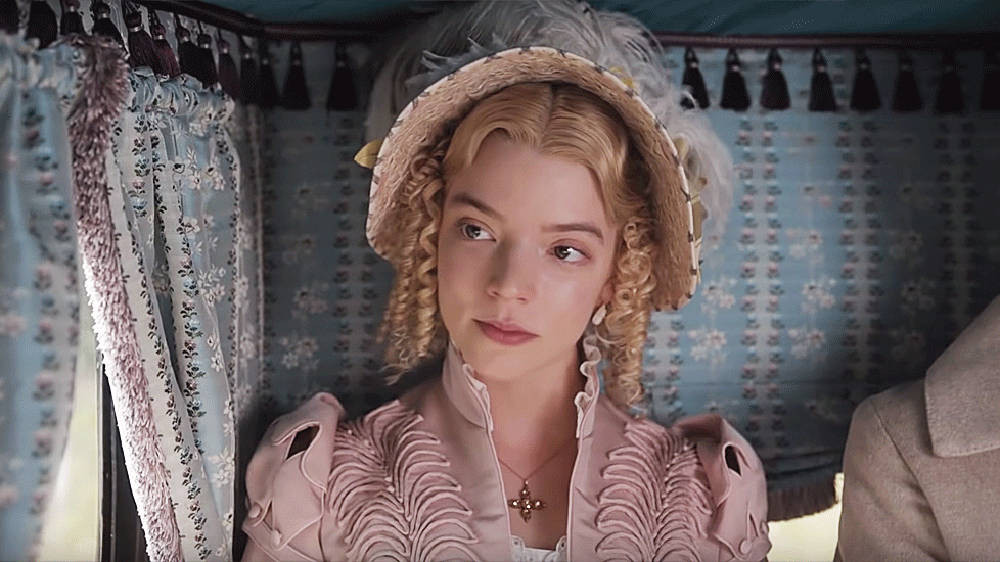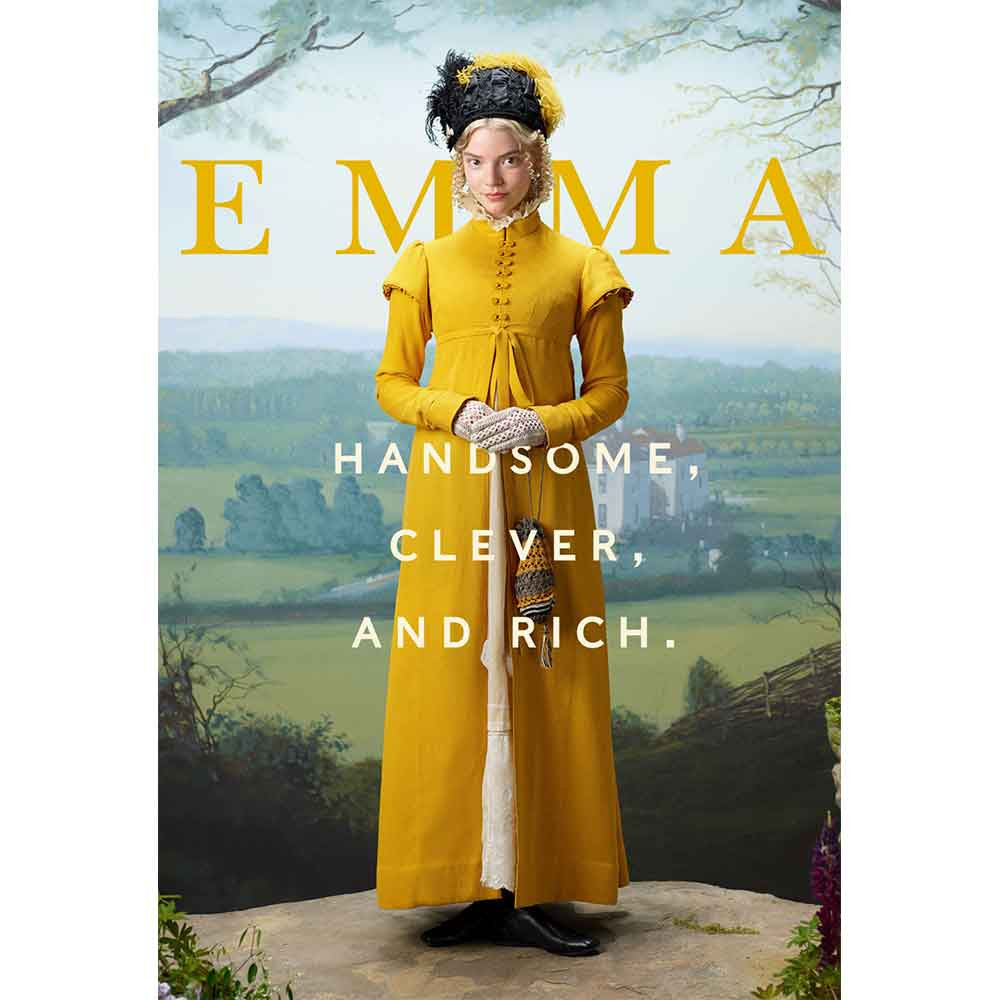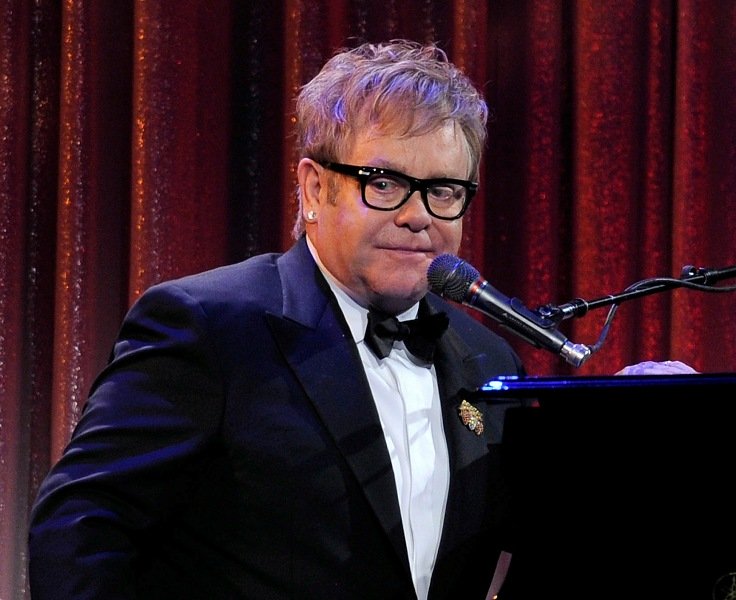
Those who are familiar with the works of Jane Austen often think of Pride and Prejudice as her best work of romantic fiction and perhaps in some ways that may be true. The story has more layers; it’s complex and gives you a variety of characters to love and hate. It’s also presents you with the ultimate romance story formula of the classic ‘opposite attract’ type push and pull story. And of course, like most romance novels, it’s got the ultimate ‘happily ever after’ ending.
Now, here I feel Austen’s other stories deserve honourable mentions too. Persuasion has its virtues too. Mostly perhaps due to the relative maturity of its central heroine Anne Elliot compared to Austen’s other central female characters. Mansfield Park is another notable work of Austen that raises questions of morality that cannot clearly and satisfactorily be resolved in neat boxes of black and white.
However, returning back to Austen’s Emma, I personally feel the story doesn’t quite get the recognition it deserves. First published in 1815, the novel is a lighter story; a quieter, more, gentler romance than Pride and Prejudice. But this is precisely why it deserves more attention. Anyone who has lived through turbulent romances knows that opposites may attract but ultimately those flames burn out and burn you out.
Of the central character Emma herself, Austen is noted to having once said, “I am going to take a heroine whom no one but myself will much like.” And this is one of the reasons why this character deserves to be examined further. Austen gives us plenty of reasons to dislike her, yet Emma somehow manages to win over her audience nonetheless.
In the 2020 film adaptation of the novel, the movie, much like the novel, opens to a description of Emma Woodhouse as ‘handsome, clever and rich’ – conveying right off the bat to the audience that Emma knows her place in the world. Immediately after, we’re told that she has lived her twenty-one years with ‘little to distress or vex her’. Once again, indicating her privileged upbringing.

This latest adaptation of the period romance is directed Autumn de Wilde, an photographer and music video director. This is Wilde’s first feature film and a feat in many ways. In previous adaptations of the novel, there was a softness to Emma, almost as if she was not fully aware of her snobbish and self-absorbed behaviour but rather it was a natural but innocent by-product of her privilege. However, in this adaptation, Wilde hones in on Emma’s snobbish behaviour. This is some ways is even a nod to the fact that Emma is ‘clever’ thus very-much self-aware of her behaviour and it’s consequences.
There’s also two conflicting sides to Austen’s Emma or rather two distinct personality traits: she is privileged but she is also warm and caring. The former would perhaps illicit a feeling of disdain towards her but it is the very-balanced and cleverly blended latter traits that make her extremely likeable to the audience.
The movie establishes this balance right from the start. Where in the opening scene Emma is shown giving meticulous instructions to a maid for flowers to be cut. She stares at each flower carefully and indulgently, as she tells her maid exactly which ones to pick out. However, immediately after she takes those flowers and gives them to her governess, Miss Taylor who is about to get married. In the scene, she is also shown as vulnerable and personable as she begins to tear up as she bids adieu to Miss Taylor.
In the 1996 rendition of Emma, Gweneth Paltrow played the memorable heroine and had been lauded as the perfect choice for the role. She had been both by turns snobbish and warm and loving. Paltrow had glowed in the role and her snobbery was often looked at as that had been bred into her and she was completely unaware of it.
So it was only natural that Anya Taylor-Joy would be compared to her predecessor in the role. However, Taylor-Joy manages to pass this test. She is unlikeable yet warm in the beginning and as the story continues, she really begins to lean into the unlikeable character trait of Emma.
She deliberately looks bored and makes faces when she doesn’t like someone. She makes comments that would hurt someone, while being fully aware of the face that they will. This is a departure from previous adaptations and Taylor-Joy delivers this sublimely.
Similar to the way Emma’s character is established early on in the movie, the same is done when we’re introduced to Mr Knightley. In two successive scenes we’re told that he’s both unusual and noble. In the first, he’s shown refusing the carriage in favour for a walk which we’re told is atypical of a man of his status and in the second, he speaks passionately to Emma of the importance of duty especially towards family. Both scenes go a long way in establishing him as an affluent man who possesses both honour and humility.
The second scene in particular, where he visits Emma’s father, Mr Woodhouse, Emma also shows his banter with Emma, which sets the tone early on for the viewers for the kind of witty and teasing relationship the two characters share with one another. This is something that the viewers then look forward to throughout the movie.
Bill Nighy is also another well-chosen actor for this story as the idiosyncratic Mr Woodhouse. He is grouchy in a typical older patriarch role however, extremely likeable.
We also learn that Miss Taylor’s marriage to Mr Weston is Emma’s matchmaking success – a feat she is rather proud of. Mr Woodhouse, warns her not to make any more matches since she is really good at them and whatever she makes happen does come true, and at this point Emma declares that she won’t make any for herself but she calls matchmaking her ‘greatest amusement’.
Emma makes a new friend early on in the story, Miss Harriet Smith. Harriet is shown as someone with an ambiguous family background, far below Emma’s wealth, upbringing and status, thus creating an imbalance of power in the friendship right away. Harriet is by turns intimidated and impressed by Emma. She looks upto her and emulates her in many ways and Emma of course, loves that.
Emma takes her under her wing and decides to make Harriet her latest matchmaking project. However, this one doesn’t go as smoothly as planned for Emma. Emma tries to dissuade Harriet from Mr Martin who, Harriet so obviously likes and who clearly also returns her affections, and instead tries to thrust her into Mr Elton’s direction, who on paper at least, seems like a far superior choice to the naïve eyes of Emma.
This is where the plot of the movie manages to successfully establish two great feats: it firstly demonstrates the yin yang of Emma and Mr Knightley and it also shows that Mr Knightly is a far better man in comparison to Mr Elton.
It manages to do the first by showing how much wiser Mr Knightley is when he explains to Emma of the reasons why Mr Elton is not a good person and the reasons why Mr Martin would be a great match for Harriet. He does this patiently and without a morsel of condescension. He also doesn’t force his opinion on Emma, when he realises she is not willing to listen.
The latter fact is established through the scene where Emma presents her ‘likeness’ pieces to her father, Mr Elton and Mr Knightley. All three men’s feedback shows different personality traits of each of the characters. In particular, we’re shown the difference between Mr Knightley and Mr Elton because the former chooses to supply sincerity whereas the latter employs flattery to impress Emma.
In the denouement of the movie, few scenes between Mr Knightley and Emma elevate the romance of the two characters and this where Taylor-Joy and actor Johnny Flynn’s (actor who plays Mr Knightley) chemistry raise this story by a few notches.
The role of Harriet is portrayed by Mia Goth beautifully and her on screen chemistry with Mr Martin (played by Connor Swindells) is also quite sublime.
Therefore, this latest adaptation of the classic does not disappoint by any means.




1732259077-0/carti-(1)1732259077-0-165x106.webp)













COMMENTS
Comments are moderated and generally will be posted if they are on-topic and not abusive.
For more information, please see our Comments FAQ